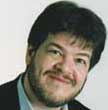
Jeff Jacoby
How to spend a surplus
http://www.NewsAndOpinion.com | Whatever last summer's Democratic National Convention may have accomplished politically, as an economic event it was a flop.
For more than a year, Boston Mayor Thomas Menino and other official boosters had rhapsodized about the riches the city would pile up when 35,000 free-spending conventioneers came to town. The $50 million it would cost to mount the convention, they confidently declared, would generate an economic gain of $150 million. Boston would bask in free publicity worth hundreds of millions more. Merchandise would fly off retailers' shelves, restaurants would be jammed, and vendors large and small would profit from doing business with the DNC.
Cooler heads warned that this was pie in the sky, that big conventions rarely live up to their promoters' hype. The Beacon Hill Institute, an economic think tank at Suffolk University, calculated that when the cost of road closings, lost productivity, and cancellations was accounted for, the net result might well be a multimillion-dollar loss. Responded Boston 2004, the convention committee run by Menino's allies: "We're having the convention. Lighten up and enjoy it."
But when the convention finally came, Boston businesses found little to enjoy. Tens of thousands of daily commuters took the week off or arranged to work from home. Tourists avoided Boston in droves. The papers were filled with accounts of deserted restaurants, disrupted downtown businesses, and vacant parking spaces in shopping districts that are usually thronged.
"THANK$ FOR NOTHING, DNC: Empty eateries, empty promises," read one newspaper headline. "IT'S A BITTER PILL FOR BIZ," read another. On the day John Kerry was to accept his party's nomination, the Boston Business Journal starkly summed up the convention's impact: "It was as if an invisible blizzard had hit town. . . . For business, the DNC has been a study in dashed expectations, for — outside of hotels, caterers, and security firms — there were few winners."
As for the delegates, they proved to be something other than unrestrained big spenders. A Boston Globe survey found that most spent less than $500 during their stay. A majority saw no more of Boston than their hotel and the convention site. "The four-day, heavily fortified conclave," the Globe concluded, "was not the economic bonanza its planners promised."
But now, it turns out, the convention did generate an economic bonanza after all. For Boston's business community? For the tourism industry? For restaurants and retailers?
No. For Mayor Menino.
The DNC was back in the news last week with the announcement that Boston 2004 had closed its books with a $6.5 million surplus. That meant that the organizing committee hadn't needed 1 of every 8 dollars it raised, which must have come as a surprise to the long list of corporations that were shaken down — er, I mean, that generously donated — to underwrite the convention. That no doubt explained why David Passafaro, the president of Boston 2004 and Menino's former chief of staff, wasted no time making it clear that the surplus would not be returned to the donors.
Instead, Passafaro said, it would be spent in a manner consistent with the donors' intent — namely, "to increase tourism and convention business, and enhance economic development for the city." Whereupon his committee voted to give a million dollars to Menino — who announced in turn that he would use the funds to beautify Boston's neighborhoods and throw parties for the city's 375th anniversary. Funny what "donors' intent" turns into when you're a politician spending other people's money.
Passafaro and the other members of Boston 2004 won't say what they plan to do with the remaining $5.5 million. But it's safe to assume they'll do nothing without Menino's approval, making it, in effect, the mayor's pot of gold.
So here's a suggestion that would benefit Menino politically without rubbing more salt in the wounds of convention donors: Use the money to make amends for the losses the DNC inflicted on so many Boston businesses.
The mayor doesn't have to admit that the convention was an economic bust. He can continue to claim, as he did last week, that it "generated $163 million in economic activity." All he has to say is that he acknowledges the obvious — the convention caused losses as well as gains — and that he thinks it only fair to use the surplus to mitigate some of those losses.
"I can understand their anger — I'm not making any excuses," Menino said last summer, answering a question about upset business owners. Now he has a chance to prove he meant it, by channeling the dollars to those who deserve them most. Spend the DNC jackpot to repay those the DNC hurt.
Like this writer's work? Why not sign-up for the daily JWR update. It's free. Just click here.
Jeff Jacoby is a Boston Globe columnist. Comment by clicking here.


